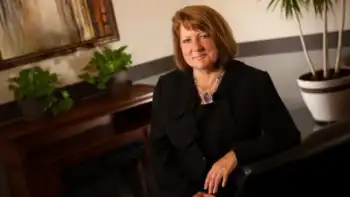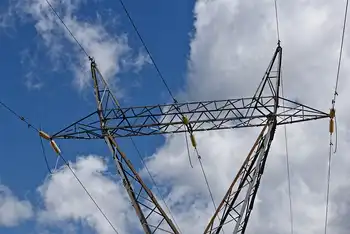AG Hood and Entergy fight has no end in sight
Ever since Hood filed a lawsuit in December, claiming the New Orleans-based utility and its subsidiaries illegally manipulated the purchase and the sale of electricity to maximize profits — both sides have issued strong opinions about its merits.
A ruling is pending on whether the trial should be held in chancery or federal court. But Hood said he doesn't expect the case to go to trial this year.
Meanwhile, Entergy has repeatedly denied any wrongdoing.
Before the suit was filed, Hood was already at odds with the utility who he claims for years has overcharged ratepayers by buying electricity from sister companies at a higher rate than on the open market, then passing the inflated costs along to customers.
The latest war of words occurred after the Louisiana Supreme Court overturned a lower court ruling that would have forced a subsidiary of Entergy to pay back over $34 million to rate payers. The ruling was made by Louisiana's 4th Circuit Court of Appeals and has been highlighted in Hood's suit.
Entergy New Orleans was ordered to make the $34 million payment after the appeals court overturned a ruling made by the New Orleans City Council, which determined the utility had overcharged customers there by $7.2 million, plus interest. The Louisiana Supreme Court upheld the New Orleans City Council's ruling requiring the lower pay back.
The appeals court had determined the city-ordered refund was too low.
"We're pleased with the high court's decision, and we believe it is the right decision," John Mullins, vice president of customer operations for Entergy Mississippi Inc., said in a written release. "The court concluded that Entergy acted in good faith and with no intent to harm our customers, just as the (New Orleans) City Council had previously concluded."
Hood told reporters after the ruling, "what they were doing in Louisiana was just a B-B shot and ours has several bullets coming out of a 50-caliber because we already have the evidence on them." Hood said the Louisiana ruling may have lowered the amount, but it didn't change the fact that customers were overcharged for power.
Entergy delivers electricity to 2.7 million utility customers in Arkansas, Louisiana, Mississippi and Texas and has annual revenues of more than $13 billion.
The utility has said its practices are fair and that the Mississippi Public Service Commission is the proper overseeing body, not Hood's office.
"This (the Louisiana ruling) fully supports our argument that matters like these should be handled by the proper regulating authority," Mullins said. "In this case, the Supreme Court confirmed the findings of the New Orleans City Council, Entergy New Orleans' regulators."
The commission in October ordered Entergy to turn over documents in two Louisiana court cases, including the New Orleans case. The company complied and Hood said those documents showed Entergy's parent company sold Entergy Mississippi electricity at $26 per 1,000 kilowatt hours that it bought on the open market for $12 per 1,000 kilowatt hours.
Hood cited the New Orleans case and another one involving a fuel contract that once led to a refund of $72 million to Louisiana customers.
Entergy first said no power under the Evangeline fuel contract was sold to Mississippi, then revised that claim by saying a small amount of power was sold between 2005 and 2008 under an re-negotiated Evangeline contract following the 2000 refund in Louisiana.
Hood said the New Orleans case doesn't erase the $72 million Entergy Louisiana was ordered to pay and he doesn't plan to stop his lawsuit.
"As a public utility, Entergy has a duty to provide its customers with power at the lowest possible price," Hood said.
Related News

Is The Global Energy Transition On Track?
LONDON - Are we doing enough to save the planet? Silly question. The latest prognosis from the United Nations’ Intergovernmental Panel on Climate Change made for gloomy reading. Fundamental to the Paris Agreement is the target of keeping global average temperatures from rising beyond 2°C. The UN argues that radical measures are needed to meet that target.
Renewable power and electrification of transport are the pillars of decarbonization. It’s well underway in renewables - the collapse in costs make wind and solar generation competitive with new build coal and gas.
Renewables’ share of the global power market will triple by 2040 from…





